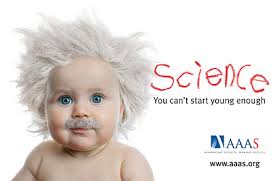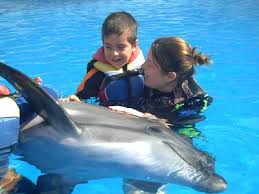周六聚會地點: 請注意 週六聚會點改至板橋區光武街48 巷13號
新埔捷運5號出口往前100公尺後右轉小巷看見全聯福利中心再左轉後往前50公尺由48巷進入
700PM-- 9:00PM 連絡電話: 0976217450 Billy
周六聚會 歡迎來開講 希望您出席支持 週六聚會點已改至板橋區光武街48 巷13號 新埔捷運5號出口
朋友們 每周一 說吧!英文讀書會 在桃園有英文練習聚會 地址: 桃園中正路50號 麥當勞 時間:700pm---9:00pm 歡迎您來參加 詳情內容 請點選首頁週ㄧ欄位

天才!哪兒來?
Where
Does Genius Come From? By Andrew Robinson huffingtonpost
What do Leonardo da Vinci, Mozart, Darwin,
Einstein and Virginia Woolf have in common? They're said to be geniuses,
supremely talented people who managed to achieve breakthroughs that other
hard-working smart folks only dream about. Where do such breakthroughs, and the
people capable of making them, come from? If we understood the essential
ingredients of genius, would we be able to create conditions conducive to its
cultivation? Andrew Robinson sets out to explore whether the idea of genius can
be clearly articulated, or whether we are just left with the notion that
"we know it when we see it." He explores as case studies the lives
and works of 10 extraordinary people: Christopher Wren, Jean-Francois
Champollion, Marie Curie, Henri Cartier-Bresson and Satyajit Ray, in addition
to those mentioned above.
Robinson begins by examining previous
attempts to identify the "ingredients of creativity" and finds most
of them wanting. He is intrigued by the combination of focus and blindness that
characterizes idiot savants, for example, but he drops the subject almost
entirely after a review of some high-profile cases. Happily, he doesn't trust
IQ tests to predict genius, nor does he buy the claim that there is any real
correlation between mental illness and great creativity. He winds up with the
rather banal conclusion that "unlike talent . . . genius is the result of
a unique configuration of parental genes and personal circumstances."
At the center of Sudden Genius? are
chapters devoted to 10 breakthroughs in the arts and sciences. One can
appreciate the author's range of subjects, from Wren's work on St. Paul's
Cathedral to Champollion's decoding of the Rosetta Stone to Ray's innovative
work in film. But Robinson's discussion of the actual breakthroughs themselves
is often pedestrian. We learn little about what has remained so exciting about
these famous achievements, nor why he chose these particular exemplars. His use
of the secondary literature is haphazard, which is perhaps to be forgiven in
light of the variety of work considered. But the author's passion for these
achievements is not always evident, and so the chapters have a tepid feel that
undercuts the notion that these are supreme monuments to creativity. Robinson
seems downright hostile to Virginia Woolf's work, and I couldn't help thinking
he would have preferred to write about science fiction author Arthur C. Clarke,
whom Robinson knew and whose name comes up at various points in the book.
At the close of the book, Robinson opines
that "talent appears to be on the increase, genius on the decrease."
I have no idea how one might evaluate such a claim, but it does sound like the
kind of thing people usually say after spending time with the conventional
classics. Unlike Sudden Genius?, the figures discussed in the book refused to
settle for the conventional, and that's one of the key reasons we continue to
ponder their achievements today.
Questions:
Where does genius come from? Do genius have
something in common?
What do you think about Leonardo da Vinci, Mozart,
Darwin, and Einstein?
What are the ways to find out if you're a
genius?
What are the ways that to make yourself
smarter?
Can new technology make people smarter?
How to discover your hidden talents?
Can someone with an average IQ become a
genius?
Is it possible to train your brain to think
like a genius?

 動物治療法
動物治療法
Animal-assisted therapy (psychiatryonline)
Animal-assisted therapy involves interaction between patients and a trained animal, along with its human owner or handler, with the aim of facilitating patients' progress toward therapeutic goals. This study examined whether a session of animal-assisted therapy reduced the anxiety levels of hospitalized psychiatric patients and whether any differences in reductions in anxiety were associated with patients' diagnoses. METHODS: Study subjects were 230 patients referred for therapeutic recreation sessions. A pre- and posttreatment crossover study design was used to compare the effects of a single animal-assisted therapy session with those of a single regularly scheduled therapeutic recreation session. Before and after participating in the two types of sessions, subjects completed the state scale of the State-Trait Anxiety Inventory, a self-report measure of anxiety currently felt. A mixed-models repeated-measures analysis was used to test differences in scores from before and after the two types of sessions. RESULTS: Statistically significant reductions in anxiety scores were found after the animal-assisted therapy session for patients with psychotic disorders, mood disorders, and other disorders, and after the therapeutic recreation session for patients with mood disorders. No statistically significant differences in reduction of anxiety were found between the two types of sessions. CONCLUSIONS: Animal-assisted therapy was associated with reduced state anxiety levels for hospitalized patients with a variety of psychiatric diagnoses, while a routine therapeutic recreation session was associated with reduced levels only for patients with mood disorders.
Questions:
What do you think about animal-assisted therapy?
Are an animal lover? Why or why not?
Do you think the animal-assisted therapy can help reduced the anxiety levels?
What are your ways to reduce anxiety?
Pros and cons of keeping animals as pets?
Can pets improve your health?
Can pets be a prescription for happier?









0 意見:
張貼留言